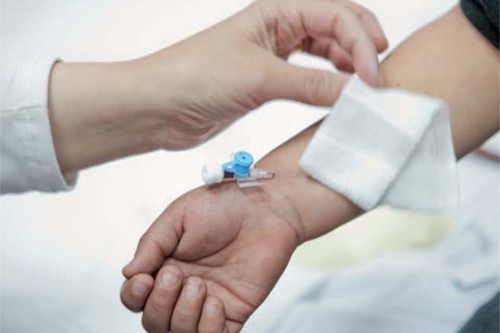
Norwegian biotech Bionor is just weeks away from completing a clinical trial to gauge the effectiveness of its therapeutic vaccine for HIV.
The read-out of the phase II REDUC trial of Vacc-4x – which is testing the vaccine alongside Celgene’s cancer drug romidepsin – is due in December and will also give an opportunity to see whether the ‘kick and kill’ theory of HIV therapy may achieve a cure.
Using this strategy, drugs are used to drive HIV from hidden reservoirs in the body that cannot be reached by antiretroviral drugs, rendering them susceptible to treatment. These reservoirs are thought to be what prevents HIV being eradicated by current drugs, which at best can only achieve long-term viral suppression.
In REDUC, romidepsin is the ‘kick’ agent while Vacc-4x is designed to stimulate an immune response to kill the virus.
Preliminary data from the trial reported at the AIDS 2014 congress showed that romidepsin was able to flush HIV out from its hiding place in six patients, although this release alone was sufficient to alert the immune system. The data due in December will come from 20 patients and should reveal if immunisation with Vacc-4X boosted the response.
Analysts at Edison – who have a business relationship with Bionor – have predicted that Vacc-4x has a 30% chance of reaching the market but if it does so could achieve sales of €1.3bn based on the assumption that it could be used as an add-on to antiretroviral therapy in high-responders or to provide a ‘treatment holiday’ in patients suffering side effects from these drugs.
In the best-case scenario – in which subsequent studies show the romidepsin/Vacc-4x regimen could form the basis of a functional cure – peak sales could be as high as €6.5bn a year.
“Bionor has set a number of initiatives in motion to fully capitalise on the potential opportunity,” say the Edison analysts, noting these include convening an expert panel led by eminent HIV specialist Professor Steven Deeks as well as securing future romidepsin supply by tapping into Celgene‘s manufacturing capacity.
The company is currently considering supportive phase I and II trials of the combination – possibly with the addition of Celgene’s Revlimid (lenalidomide), another cancer drug which has also been shown to stimulate the immune system.




